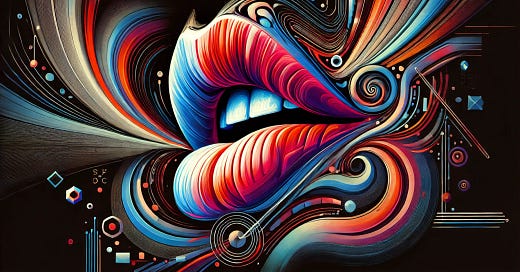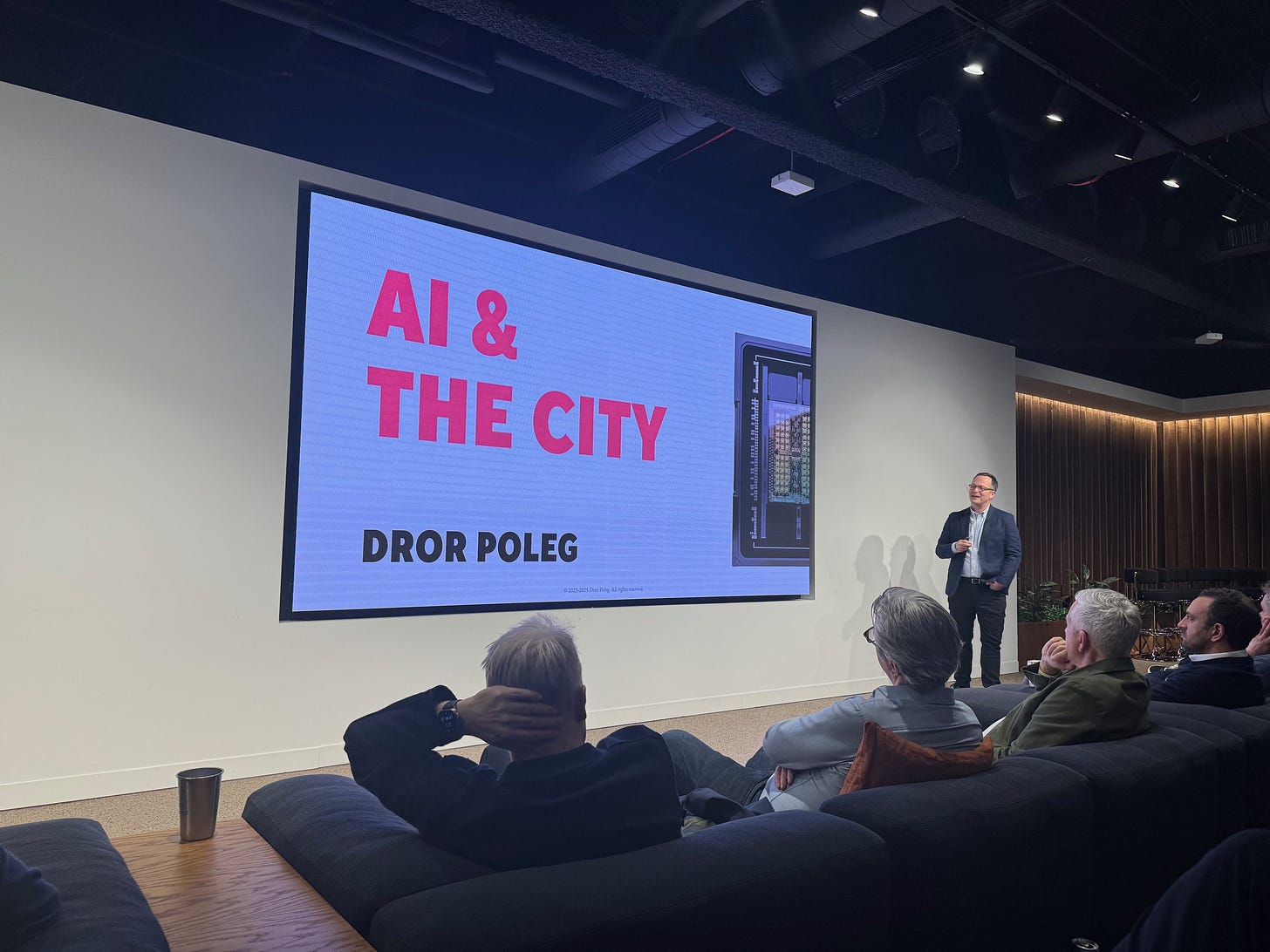Make AI Work is a new newsletter brought to you by Future Work/Life, helping non-technical, AI-curious folks like you understand how AI can help you build great teams and careers. If you find it interesting, please share it!
I've been thinking about taste a lot recently - not the kind that helps you pick a good restaurant, but the kind that helps you build exceptional products and teams.
Last night, I attended Dror Poleg's excellent talk on 'AI & The City,' where he explained how we've shifted from a linear economy (predictable inputs and outputs) to a non-linear one where success is governed by unpredictable, disproportionate relationships between effort and outcomes.
Dror illustrated this non-linear world perfectly with a simple movie industry example: Wonder Woman was a billion-dollar success while Catwoman flopped - despite both having similar inputs (big budgets, star actresses, superhero franchises).
Why did this happen?
Well, as screenwriter William Goldman famously said about Hollywood:
"Nobody knows anything."
What makes a hit is fundamentally unpredictable.
This unpredictability isn't isolated to entertainment. It's becoming the norm across business. When the relationship between inputs and outputs becomes non-linear, success depends on spotting opportunities others miss – and that's where taste comes in.
The Rise of Taste as Differentiator
This shift is being discussed extensively in tech circles, particularly around AI's impact on software development.
Y Combinator (the world's premier startup accelerator that helped launch companies like Airbnb and Dropbox) recently surveyed founders in their current batch. One quote stood out:
"Human taste is now more important than ever as AI coding tools make everyone a 10x engineer."
What's striking is that these aren't novices – these are highly technical founders who could build their products without AI. Yet they're acknowledging a fundamental shift in what creates competitive advantage.
When AI can generate 95% of a codebase (which 25% of YC founders now report), the edge moves from coding skill to product intuition – knowing what's worth building and how it should feel.
Beyond Tech: Taste Matters Everywhere
Software development may be the canary in the coal mine, but the implications stretch beyond coding.
In marketing, when AI can generate endless ad variations, taste helps you select the campaign that will genuinely resonate.
In design, when tools can produce infinite iterations, taste determines which direction creates emotional connection.
In leadership, when data provides countless possible directions, taste guides which strategy will actually inspire your team.
In this context, as implementation becomes commoditised, taste becomes the critical differentiator.
Why This Is Happening Now
Dror's talk illuminated why this shift is happening with a striking visual: in 1975, tangible assets represented 90% of S&P 500 value. By 2020, that ratio reversed, with 90% coming from intangibles: code, content, brands, and relationships
.
These intangible assets follow non-linear patterns where traditional processes break down. Success depends on what Dror calls "low probability, high impact events" – essentially, unexpected opportunities that can't be predicted, only recognised and seized.
AI only accelerates this trend.
And it demands a new set of behaviours and skills. This new landscape favours what investor Ravi Gupta calls 'world-class reactors' over "world-class predictors."
What does this mean?
World-class reactors excel at quickly adapting to new information rather than trying to forecast precisely what will happen next. Coach K at Duke University put it well:
"I am not a world-class predictor, but I am a world-class reactor."
When college basketball shifted from four-year players to one-and-done stars, he didn't predict the change – but once it happened, he adapted better than anyone else.
This adaptability becomes crucial in a non-linear world. Organisations that can experiment rapidly, learn quickly, and pivot when needed will outperform those optimised for consistency and efficiency.
Developing Taste Without the 10,000 Hours
Back to those YC founders, because the impact seems to be playing out first in technical roles - on a recent Lightcone podcast, the hosts discussed how AI is reshaping their work.
"I don't write code much. I just think and review…"
…said one technical founder. Another noted:
"I am far less attached to my code now... since I can code three times as fast, it's easy for me to scrap and rewrite if I need to."
The critical question becomes, how do we develop taste when traditional expertise-building paths are being disrupted?
Because having foundational knowledge still matters.
Picasso mastered classical techniques before creating revolutionary abstract art. His famous bull series shows his progression from realistic depiction to abstract essence – but that progression was only possible because he understood the fundamentals.
And it wasn't long ago that software engineering was considered the skill that would future proof your career. Has that changed?
Well, as the Picasso – or even the YC founders – example shows, having a fundamental understanding of what needs to be created and how is still important. It's difficult to oversee the work of someone or something if you don't know what 'good' looks like.
But the gap between an idea and a finished product is narrowing.
In this respect the balance is gradually shifting toward taste and away from technical implementation. Which means, if you've always had strong intuition but weren't technically inclined, this shift creates new opportunities.
For businesses, this means reconsidering what skills we value and how we develop them.
What can you do?
Build a reference library: Save examples of exceptional work in your field. Note specifically what makes each piece effective. Review regularly to train your recognition of quality.
Create and compare: For your next project, generate multiple versions instead of perfecting one. Get feedback on which works best and why. AI makes this rapid experimentation possible.
Use AI as a taste gym: Have AI generate several solutions to a problem, then practice critically evaluating them. This builds your judgment muscles faster than traditional learning paths.
Study adjacent disciplines: Spend time learning principles from a field different from yours. These unexpected connections create unique perspectives that others miss.
Start small, but start now.
What's your take? How is AI changing how you approach your work?
And how do you develop taste in your domain?
Thanks for reading,
Ollie







